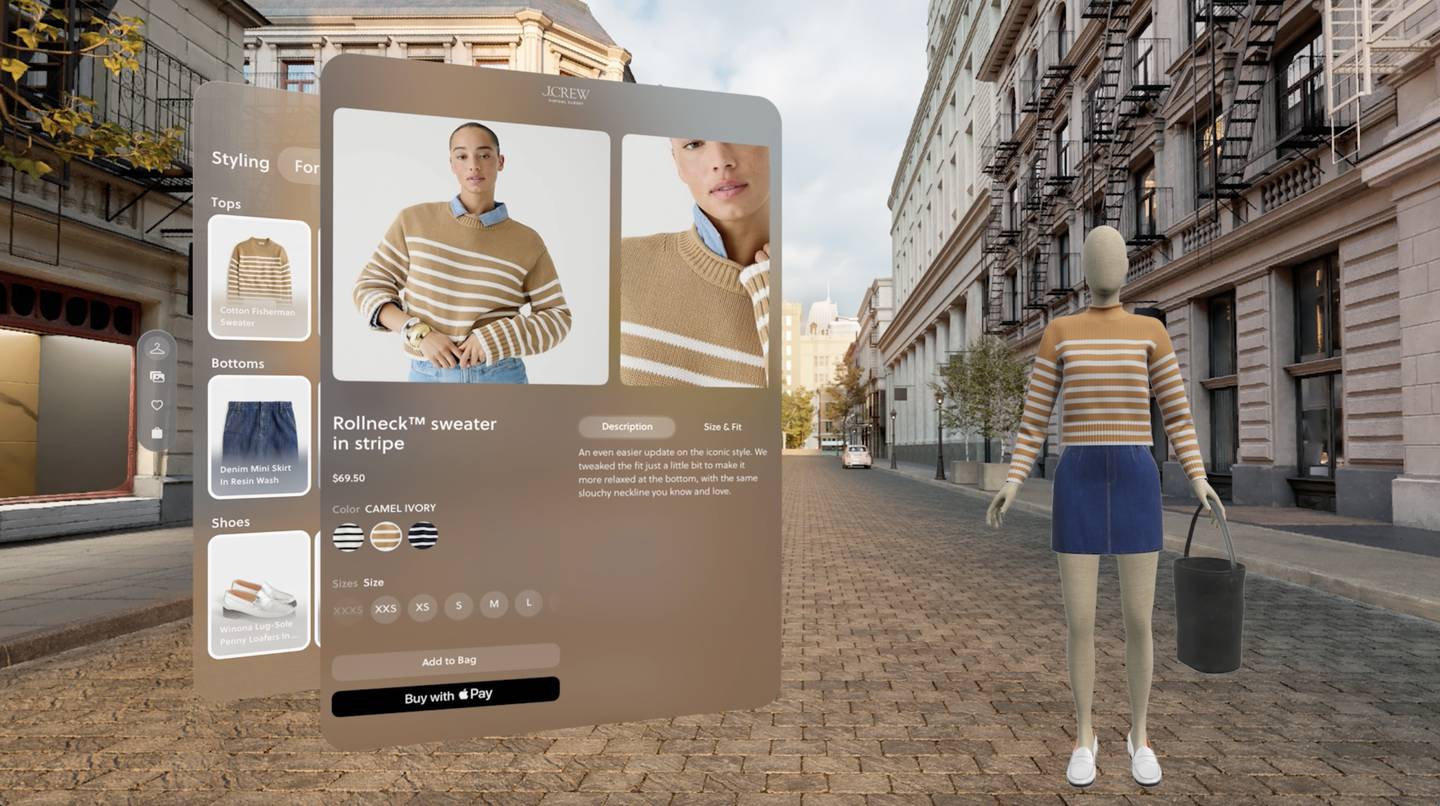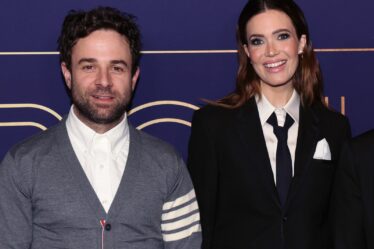
It’s too soon to say whether Apple’s Vision Pro will become the next must-have device, but that isn’t stopping fashion and beauty companies from diving in and creating apps for it.
The Vision Pro releases Friday at a cost of $3,499, and among those offering apps at launch are Mytheresa, J.Crew and E.l.f. Cosmetics. The companies all created their apps, which are free to download, in partnership with Obsess, a creator of virtual stores that said it’s currently working with a number of other brands on dedicated apps for the Vision Pro.
The device is widely seen as a test of whether Apple can do for headset computers what it previously did for smartphones with its introduction of the iPhone in 2007. The product blends augmented and virtual reality, allowing users to layer digital objects over the physical world or inhabit a fully virtual space. Apple calls it “spatial computing.” In January, pre-orders of the device sold out, with one analyst estimating total orders of 160,000 to 180,000, though demand could wane, the same person warned.
“This is a unique opportunity to be among the first movers,” said Isabel May, Mytheresa’s managing director and chief customer experience officer. “Also to show digital leadership in a device we think matters to our customers.”
The luxury retailer’s app transports users to immersive virtual locations such as a dazzling beach in Capri or Paris at night where they can get inspired and, of course, do some shopping. Many of its customers often shop with an occasion such as a trip in mind, according to May. The goal was to create an emotional experience they couldn’t get from a standard e-commerce site.
“We pick, for example, Paris by night as an occasion because, when you experience it, you hear the whisper of French in the background, see the glittering Eiffel Tower, and that actually makes you feel, ‘Of course, I need a dress to go with it,’” May said.
Customers are able to purchase directly in the Vision Pro app, though they’ll need to pay using Apple Pay.
J.Crew’s app introduces a virtual closet with a curated selection of products for users to explore. They can also mix and match pieces on a personal in-app mannequin, and chat with a company stylist or host a group call with friends to get opinions.
E.l.f.’s app offers features such as an interactive “Paint by Numbers” game, guided meditations and stretching exercises.
Apple said in a release that more than 600 native apps and games will be available for the Vision Pro to start, alongside more than 1 million apps for the iPhone and iPad that are compatible with its operating system, visionOS. In time, more fashion apps are likely to join that group. But developing a dedicated app requires technical resources and expertise, particularly when creating for VR and AR.
Neha Singh, founder and chief executive of Obsess, said the process is very different than creating an app for iPhone. You’re building a complete environment that users interact with.
What’s yet to be determined is how many customers will use these apps and actually shop through them. Early reviews of the Vision Pro have given high praise to its impressive technical achievements, but many have also questioned what, exactly, its purpose is. “The Apple Vision Pro Is a Marvel. But Who Will Buy It?” asked the headline of the New York Times’ review. It makes for a compelling initial experience, but will users choose it over their laptop or phone month after month?
Whether the device is a success, brands want to make sure their apps are at least. Mytheresa spent a few months developing its app with Obsess, fixating on details such as the rim of an umbrella or the colour of the sea. Singh said a number of brands are also thinking about uses to appeal to their highest-spending customers, who — because of their wealth — are among those more likely to buy the Vision Pro.
“The whole reason why they’re creating this experience is because they want to invite the customer into their world,” Singh said. “[With Vision Pro] all of those details are now even more visible than how much you can see on your mobile phone and because the resolution is so high … and that’s part of the brand identity.”



